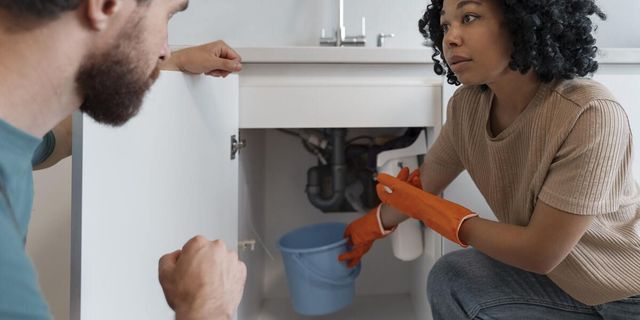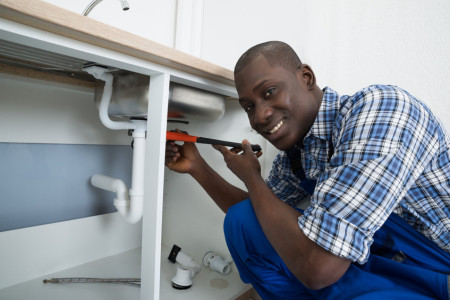Urgent Plumbing Fixes to Apply Until Specialist Help Arrives
Urgent Plumbing Fixes to Apply Until Specialist Help Arrives
Blog Article
What are your opinions about Plumbing Emergencies: Tips on What To Do Before?

Pipes emergencies can strike at any time, triggering stress and possible damage to your home. Whether it's a ruptured pipe, a clogged up drainpipe, or a dripping tap, understanding how to take care of the scenario up until an expert plumber gets here can conserve you from further problems. This post supplies vital emergency plumbing tips to help you minimize damages and gain back control throughout a plumbing crisis.
Turn Off the Water
The primary step in any plumbing emergency is to shut off the water system. For localized issues, such as a leaking tap or bathroom, shut off the valve near the component. When it comes to a significant leak or burst pipeline, find your home's main water shut-off valve and transform it off right away. Knowing the area of these valves beforehand can conserve useful time during an emergency situation.
Turn off Your Water Heater
In particular emergencies, such as a burst pipe, it's wise to shut off your hot water heater. This stops overheating or damage to the device when water quits streaming. Turn off the power supply to the hot water heater (electrical or gas) and allow it cool down to avoid possible dangers.
Briefly Stop a Ruptured Pipeline
A ruptured pipe can lead to substantial water damage in mins. To minimize the concern:
Call a specialist plumbing professional immediately to attend to the issue permanently.
Have an Emergency Situation Pipes Set
Prepare a basic pipes emergency situation kit to handle small problems effectively. Your package must include:
Having these devices handy can make a significant distinction in your capability to manage emergency situations.
Unclog Drains Securely.
A stopped up drain can be an irritating and untidy issue. Right here's how to tackle it:.
If these approaches don't function, avoid making use of excessive pressure, as it may get worse the obstruction.
Take Care Of Overflowing Toilets.
An overflowing commode can trigger instant chaos. Below's what you should do:.
Address Little Leaks with Short-term Fixes.
Small leaks can rapidly end up being considerable troubles if left untreated. Utilize these short-term fixes until professional help arrives:.
While these solutions aren't permanent, they can help reduce water loss and damages.
Handle Frozen Pipes Very Carefully.
In chillier climates, frozen pipelines are an usual emergency situation. If you presume a frozen pipe:.
Know When to Call a Specialist.
While quick fixes can help momentarily, specific pipes problems require instant professional interest. Call a plumbing if:.
Quickly contacting an expert ensures the problem is settled properly and avoids additional complications.
Stop Further Damages.
Taking quick activity to minimize damage can conserve you time and money in the future. Here's just how:.
Conclusion.
Plumbing emergency situations can be overwhelming, however with the appropriate knowledge and tools, you can take care of the situation efficiently till aid arrives. By shutting off the water, addressing little leakages, and using short-term repairs, you can decrease damage and keep your home safe. Keep in mind, these ideas are temporary services; always seek advice from a qualified plumber to handle the source of the issue. Prep work and fast reasoning are your ideal allies in any kind of plumbing emergency.
8 Helpful Tips for Managing Plumbing Emergencies at Home
If your plumbing system hasn’t failed once, wait for it because almost everyone has a story to tell. Sometimes, it could be simple emergencies such as a leaking pipe, a blocked cistern, or even a big burst pipe. In situations like this, you need to have some handy tips to save you some money and from possible damages.
Take care of minor issues early.
Sometimes, you could have avoided an emergency by taking proactive measures while it was still early. Some major plumbing emergencies can be a result of an ignored minor issue. We recommend that you have items like plumbing tapes and other related items. A plumbing tape can allow you to manage minor leaks before the plumber arrives.
Cut off the water supply.
This tip is essential in almost any type of leakage problem. For problems like minor leakages in the toilet or kitchen, turn off the supply that takes water to the affected pipes. If the leakage is a major pipe, you must shut off the supply valve to the entire building. This will help you avoid flooding your home and neighbors if you share a flat.
Know your plumbing system
Folks typically move into a new apartment without understanding the water supply around the building. This can prove disastrous if a water emergency arises and the plumber is far away. The previous tip will prove useless if you don’t practice this one. More importantly, know where your water shut-off valve is located – you’ll need that knowledge to prevent potential home floods.
Have some common handy tools
There are lots of plumbing emergencies that you can handle without hiring a plumber. That’s why you must keep some tools available always. Some tools that you can use to fix simple plumbing emergencies easily include plumbing tapes, screwdrivers, thread seal tapes, plungers, pliers, tape measures, and rubber gloves.
Insulate your pipes from cold
You’ll save yourself from many plumbing expenses if you protect your water pipes from the cold. This is because of the harmful effects that cold weather can have on your pipes. During winter, your pipes can burst from being overly expected to freezing temperatures. So, make sure insulators are there to keep the pipes working correctly.
Avoid practices that will clog your toilet.
Many people indulge in practices that can damage the plumbing system of the entire building. One of these is when they use their toilet to dispose-off garbage. They flush all kinds of things, such as paper towels, bandages, hairs, female sanitary products, etc., down the toilet. This will block your toilet in the long run, incurring unnecessary expenditures. Dump such waste in the trash instead.
Check your dials regularly.
Sometimes, there could be leakages in your home without noticing them in time. So, constantly monitor your water meter dial. If the dial is reading when there is nobody using water, this is an indicator that there is leaking. Check for leaks immediately. Call a plumber as soon as possible if you can’t find any.
https://www.constructionplacements.com/8-helpful-tips-for-managing-plumbing-emergencies-at-home/

I have been very drawn to Plumbing Emergencies: Tips on What To Do Before and I am assuming you liked the entire post. Loved our piece of writing? Please share it. Help others discover it. Thank you for your time. Come back soon.
Book Report this page